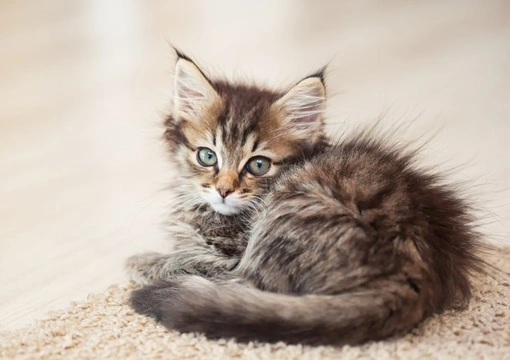
Five breeds of cats that tend to get on well with dogs
Cats are the most commonly owned pet in the UK, consistently beating the dog in the popularity rankings in terms of the sheer number of domestic cats in the country, and how many households own one. Dogs of course are a close second in the popularity stakes, and many cats also share their home with a dog, or at least, get used to having canine visitors around without running for their lives or seeing the dog as a threat.
A large part of the battle when it comes to getting a cat used to dogs is how their first interactions with dogs go; if the cat has ever been chased or threatened by a dog, they are likely to be nervous around dogs, which can take the form of becoming defensive, or running away, which in turn will also trigger the prey drive in dogs, making the problem worse. While cats should not automatically trust strange dogs, as their natural caution can help to keep them safe outside of the home when around dogs, a certain level of confidence with dogs is a good thing in the cat, as the more likely a cat is to run away, the more likely it is that they will be chased.
A confident cat that is comfortable around dogs can also in turn help to get dogs used to being around cats, teaching them respect and not to chase or otherwise threaten or frighten the cat. Some cats tend to be a little too big for their boots as well, and may even chase or stalk the local dogs!
If you aspire to keeping a cat and a dog side by side in harmony, getting the balance right and making good introductions is a large part of the battle. Very shy cats are likely to find it hard to get used to a dog, although this is by no means impossible, and even the most reticent of cats may ultimately be able to live with a dog, and even form a bond with it.
However, some breeds and types of cats are more likely to take to the presence of a dog than others, and these tend to be confident, playful breeds that are not easily phased. In this article, we will look at five breeds of cat that tend to get on well with good, cat-friendly dogs.
Siamese
The Siamese cat is an exotic and vocal breed that has an almost childlike personality when it comes to demanding company and attention! They tend to enjoy their home comforts and form strong bonds with their immediate family, often showing a marked favouritism for one particular person! The Siamese cat that is confident and secure in their home may at first show some jealousy about the presence of a dog, but will often in time bond with the dog and view them as part of their family.
Abyssinian
The Abyssinian is another exotic breed that is tall, lithe and very active, and one of the boldest breeds of cat that likes to get out and about and explore! They tend to have confident and outgoing personalities, and not be particularly shy or afraid of meeting new people and animals. The Abyssinian cat with the right canine companion will soon come to view the dog as a new potential partner in crime!
Bengal
The Bengal cat is a distinctive and handsome hybrid breed, with ancestry including small wild African cats, which gives the breed both a unique style of coat, and distinctive personality. They tend to be very vocal and can be demanding, and like constant attention and company to cuddle up with! The Bengal cat loves the company of another cat, and will also generally accept a dog as their pal too.
Maine Coon
The Maine Coon is one of the largest breeds of cat, often weighing in at more than some small and toy dog breeds! They are independent, excellent hunters and love the outdoors, and are not easily phased by new experiences. The confident Maine Coon is one of the breeds that is least likely to see a dog as an automatic threat, and will often live perfectly happy with a canine companion.
Norwegian forest cat
The Norwegian forest cat is another large, confident and bold cat breed that has a tendency to be independent and likes doing their own thing. They are bold with both strangers and other animals, and are unlikely to run away from a dog on principle. The Norwegian forest cat is a good choice of cat for families with a dog that is already used to cats, or to introduce a young cat to the presence of a dog for the first time.
As ever, all animals should be treated as individuals and managed on a case by case basis. There is no breed of cat that automatically will dislike and not accept being around dogs, and initial introductions and how the status quo of the household is managed are the most important elements of the harmonious multi-pet household!



